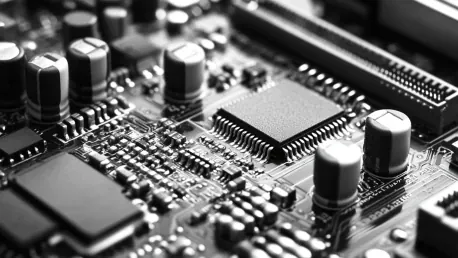The world of hardware engineering is under immense pressure to evolve. Despite significant advancements in software development aided by sophisticated automation tools, hardware engineers still endure cumbersome, outdated methods that hinder productivity and creativity. This disparity has spurred keen interest in employing Artificial Intelligence (AI) as a transformative force in the field. The potential benefits are enormous, encompassing enhanced productivity, fewer errors, and an elevated focus on innovation rather than monotonous, repetitive tasks.
The Challenges in Hardware Engineering
The daily grind of a hardware engineer is riddled with inefficiencies that current tools seem unable to resolve. Tasks such as poring over extensive datasheets, mitigating polygon errors, and managing under-constrained sketches are both tiresome and time-consuming. Unlike in software development, where numerous processes have been streamlined, hardware engineers often find themselves bogged down by routine work. This not only hampers productivity but also stifles creativity and innovation, making it difficult to keep pace with ever-growing industry demands.
Mistakes in hardware engineering come with high stakes, leading to catastrophic failures and significant financial losses that can ripple through entire industries. High-profile incidents, such as airplane malfunctions, serve as grim reminders of the critical need for precise and reliable tools. The existing challenges underscore a glaring need for the modernization of hardware engineering tools, akin to the transformative strides made in software development over the past few decades.
A Look at the Software Engineering Paradigm
Software engineering has experienced a technological renaissance, with the advent of automated tools dramatically transforming workflows. Functions that once took hours or even days can now be accomplished in a matter of minutes. Innovations such as server setups, file format compatibility, and integrated internet access have become standard, significantly reducing the manual labor involved in developing software. Automation has not only expedited processes but also enabled higher levels of creativity and problem-solving among software engineers.
The contrast between the current states of hardware and software engineering couldn’t be more stark. Software engineers now benefit from systems that anticipate and correct errors, streamline complex processes, and support rapid development cycles. This paradigm serves as a model for what could potentially be achieved in hardware engineering with the right innovations. By taking cues from software development, hardware engineering can aspire to a future where inefficiencies are minimized, and creative potential is maximized.
The Potential of Artificial Intelligence
AI stands out as a beacon of hope for transforming hardware engineering, offering immense potential to automate repetitive and mundane tasks. Rather than eliminating jobs, AI is envisioned as a tool that can augment the capabilities of hardware engineers. By automating soul-sucking tasks, AI can free engineers to focus on higher-level problem-solving and innovation, significantly enhancing their productivity and job satisfaction.
AI’s capabilities extend to detecting design errors, optimizing reference designs, and even selecting the right components for a project. Early iterations of AI-powered tools have already shown promise, simplifying the arduous process of navigating through extensive datasheets and component lists. The scope for AI in hardware development is vast, limited only by our imagination and the technology’s current capabilities. The potential for AI to revolutionize hardware engineering, akin to its impact on software development, makes it an essential avenue for future research and development.
Introducing Zenode: AI in Action
At the forefront of this AI-driven revolution is Zenode, a company co-founded by Brandon Bourn. Zenode aims to leverage AI to usher in a new era in hardware development. The company’s first product is an AI-powered search engine designed to sift through vast catalogs of electronic components. This innovative tool addresses the inefficiencies and frustration that engineers face with manual component selection, providing a streamlined approach to an otherwise tedious task.
Zenode’s AI-driven search engine simplifies the selection process by delivering precise and relevant search results. This drastically reduces the time engineers spend on component selection, allowing them to dedicate more time to innovation and critical decision-making. By automating these routine tasks, Zenode exemplifies how AI can be harnessed to tackle the unique challenges faced by hardware engineers. The company’s approach serves as a promising model for how AI can transform hardware development processes, leading to significant improvements in efficiency and productivity.
Future Prospects: Beyond Mere Automation
The field of hardware engineering is facing tremendous pressure to evolve. While software development has seen significant advancements through the use of cutting-edge automation tools, hardware engineers still work with archaic methods that impede both productivity and creativity. This significant gap has led to a heightened interest in leveraging Artificial Intelligence (AI) to revolutionize the industry. The potential benefits of incorporating AI are extensive. It can lead to increased efficiency, fewer mistakes, and allow engineers to concentrate on innovation rather than getting bogged down with repetitive and mundane tasks.
Using AI in hardware engineering could completely transform the workflow. Current methods often require manual intervention for tasks that are redundant and time-consuming, which stifles creative problem-solving. With AI, these bottlenecks can be eliminated, freeing up engineers to focus on design improvements and innovative solutions to complex problems. Automating routine processes not only enhances productivity but also elevates the entire field by creating a work environment that encourages creativity and efficiency. This way, AI holds the promise of reshaping hardware engineering into a more dynamic and forward-thinking domain.









